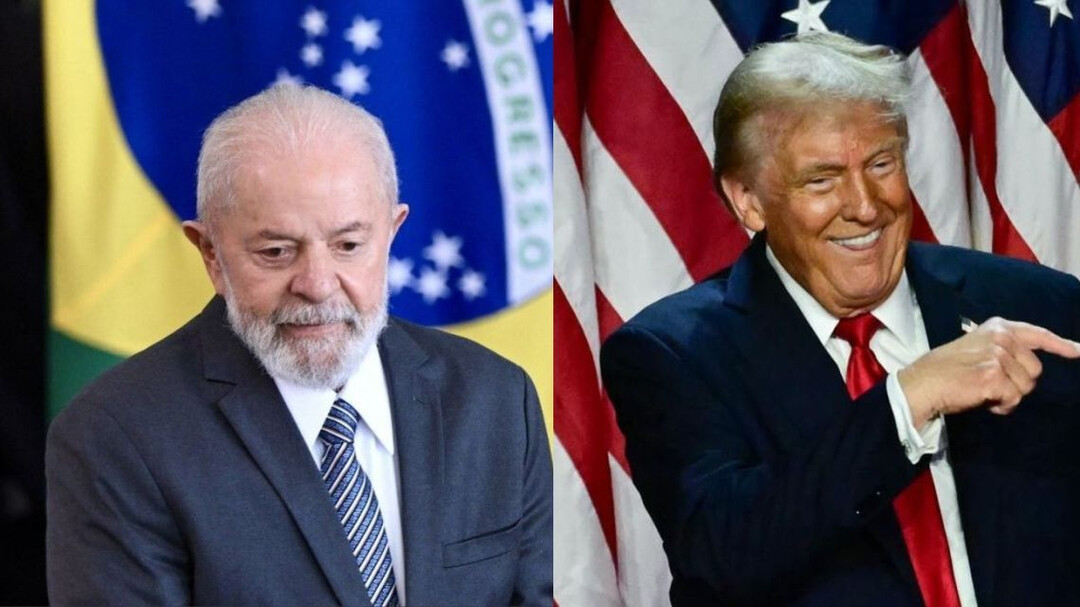
Rio de Janeiro, Brazil – The Brazilian government, under President Luiz Inácio Lula da Silva, is prioritizing negotiations to avert a potential trade war with the United States. This mission falls primarily on Vice President and Minister of Development, Industry, Commerce and Services, Geraldo Alckmin. The core question is: What strategy is Brazil employing, and what are the potential repercussions of the tariffs imposed by the Trump administration?
Background
The initial meeting between Brazilian and U.S. officials, led by Vice President Alckmin, took place in Brasilia on March 14. Discussions centered on the 25% tariffs on steel and aluminum imports, which President Donald Trump enacted on March 12. Following this meeting, Alckmin confirmed that further discussions were planned, though he remained tight-lipped about any progress made.
"We are aiming for a mutually beneficial path. We are working towards economic complementarity," Alckmin stated, maintaining a cautious and enigmatic tone.
The Brazilian government is actively seeking to reinstate tariff-free quotas that were in place before the new import taxes.
President Trump has announced that reciprocal and sector-specific tariffs will take effect on April 2. This announcement, made during his flight from Florida to Washington D.C., also included plans for tariffs on automobiles and a firm stance against exemptions on the 25% steel and aluminum tariffs.
Impact on Brazil
These developments are concerning for Brazil, the second-largest steel supplier to the U.S., trailing only Canada.
In 2024, Brazil exported 4.8 million tons of steel to the U.S., valued at $2.9 billion, representing 15.5% of total U.S. steel imports.
The Institute of Applied Economic Research (IPEA), affiliated with the Ministry of Planning and Budget, estimates that Brazil could lose up to $1.5 billion in exports due to the new tariffs. In terms of volume, this could mean a reduction of 1.6 million tons of steel and aluminum.
The IPEA highlighted, "The U.S. market directly affects over 10% of the ferrous metals sector's revenue. The dependency is even greater for semi-finished products (plates and ingots), which account for about 90% of Brazil's sales to the U.S."
The Organization for Economic Cooperation and Development (OECD) predicts that Trump's tariffs could slow global economic growth, impacting the U.S. economy as well.
The OECD forecasts a recession in Mexico and a 0.3 percentage point reduction in global growth by 2026. The U.S. economy could see a 0.5 percentage point impact. Brazil's growth projections have also been revised downward, from 2.3% to 2.1% in 2025 and from 1.9% to 1.4% in 2026.
Brazil now faces the challenge of finding new markets, particularly as China's demand has decreased. The recent decline in iron ore futures contracts, following Chinese real estate data, has raised concerns about the demand outlook amidst ongoing trade tensions.
Potential Economic Consequences
Brazilian economists foresee a range of potential impacts from the tariff war, including increased unemployment in the steel sector, a stronger dollar due to reduced international sales, further devaluation of the real, and rising inflation.
"We still need to understand how the domestic industry will react and whether it can absorb all the steel that was previously exported to the U.S.," said José Luiz Pimenta, an international trade expert and director of BMJ Consultoria.
Meanwhile, the U.S. steel industry has criticized Brazil, with the Steel Manufacturers Association (SMA) labeling Brazil as the "China of Latin America" and accusing the Brazilian government of heavily subsidizing its steel industry.
SMA President Philip Bell pointed out that the U.S. had an 18 million ton steel deficit in 2024 and that imports have exceeded exports by 200 million tons over the past decade.
Bell also cited OECD figures indicating a global oversupply of 644 million tons of steel in 2025, which he argues is driving increased U.S. imports from various trade partners, not just China.
The SMA's 40-page letter specifically targets Brazil, noting its production capacity of 50.9 million tons, despite only producing 31.8 million tons in 2023. The letter also highlights a recent $17.6 billion investment plan by Brazilian steelmakers to expand production.
The letter further states that U.S. steel exports to Brazil face an average tariff of 12.6%, which can reach up to 20% or 35% for certain products.
"Brazil heavily subsidizes its domestic steel industry, giving Brazilian producers unfair advantages in global trade and making it difficult for U.S. producers to compete in third-party markets," Bell wrote.
Vice President Alckmin countered, "Brazil is not a problem for the U.S. The U.S. has a surplus with Brazil in both goods and services. Moreover, eight out of the top ten U.S. exports to Brazil have zero import tariffs."
The Brazilian government has described the tariffs as "unjustifiable and wrong," threatening to appeal to the World Trade Organization (WTO). The government has also pledged to work with the private sector to defend national interests.
In the coming weeks, Brazilian ministers and diplomats will seek to negotiate trade agreements with President Trump to mitigate the impact of the new tariffs. This includes discussions on increasing Brazil's sugar export quota to the U.S. market, which currently allows 146,600 tons tariff-free, with an 80% tariff on excess.
[Copyright (c) Global Economic Times. All Rights Reserved.]






























